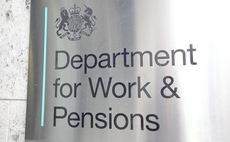Mark Dearnley to take control of £200m, three-year digitisation programme
Mark Dearnley, CIO at Vodafone, is to become HM Revenue & Customs' (HMRC) new chief digital and information officer. Dearnley will start his new role in October and take control of HMRC's £200m ...
To continue reading this article...
Join Computing
- Unlimited access to real-time news, analysis and opinion from the technology industry
- Receive important and breaking news in our daily newsletter
- Be the first to hear about our events and awards programmes
- Join live member only interviews with IT leaders at the ‘IT Lounge’; your chance to ask your burning tech questions and have them answered
- Access to the Computing Delta hub providing market intelligence and research
- Receive our members-only newsletter with exclusive opinion pieces from senior IT Leaders






















